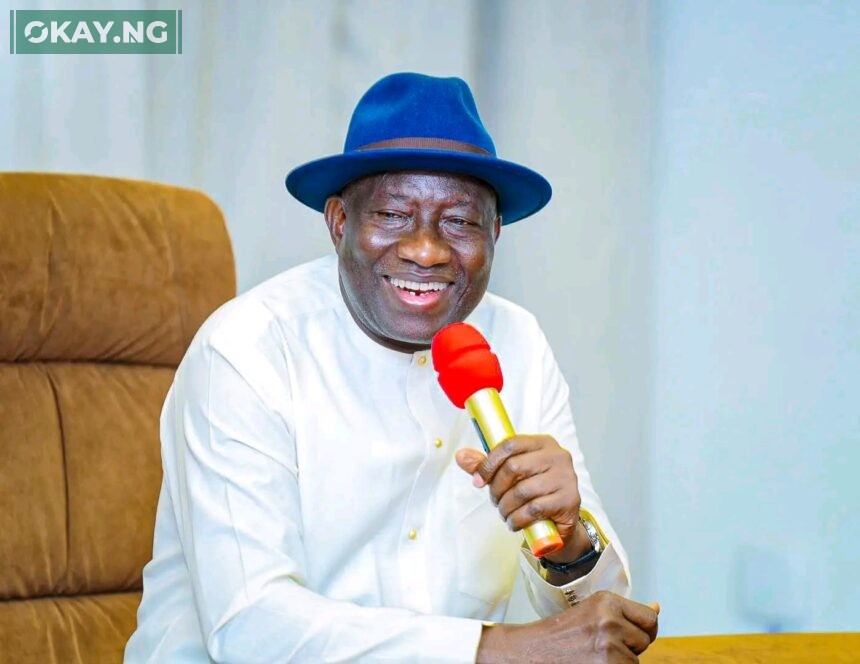676
By Myke Agunwa,
The Federal High Court in Abuja has been asked to restrain former President Goodluck Jonathan from contesting the 2027 presidential election.
In the suit marked FHC/ABJ/CS/2102/2025, filed by Abuja-based lawyer Johnmary Jideobi, the plaintiff is also seeking an order barring the Independent National Electoral Commission (INEC) from accepting or publishing Jonathan’s name as a duly nominated candidate of any political party for the 2027 presidential poll.
The defendants listed in the suit are Dr. Goodluck Jonathan, INEC, and the Attorney-General of the Federation (AGF).
The plaintiff posed a single question for determination — whether, in light of the combined interpretation of Sections 1(1), (2), (3) and 137(3) of the 1999 Constitution, the first defendant (Jonathan) remains eligible to contest for the office of the President under any circumstances.
Jideobi, who is seeking five reliefs, prayed the court to declare that Jonathan, having once completed the unexpired term of the late President Umaru Musa Yar’Adua and later served a full four-year tenure after the 2011 election, “is ineligible to stand for or occupy the office of the President of the Federal Republic of Nigeria.”
He further asked the court to declare that INEC lacks constitutional authority to receive or publish Jonathan’s name as a presidential candidate in the 2027 or any subsequent elections.
In a supporting affidavit, Jideobi recalled that Jonathan was first sworn in on May 6, 2010, following Yar’Adua’s death on May 5, 2010, and later won a full term after the 2011 general election.
The lawyer said he was prompted to approach the court after media reports suggested that Jonathan might be considering another presidential run in 2027.
According to him, “If the court does not intervene timeously, a political party may present the 1st defendant as its presidential candidate in the 2027 general election, thereby breaching the Constitution.”
Jideobi argued that allowing Jonathan to contest again would mean he would be taking the oath of office as President for the third time, contrary to the constitutional limit.
He contended that the Constitution provides that “a person who was sworn in as President to complete the term for which another person was elected shall not be elected to such office for more than a single term.”
The plaintiff, who described himself as “a lawyer committed to the reign of constitutionalism and an unrepentant apostle of the rule of law,” said he instituted the suit in the public interest to defend the Constitution and prevent any violation of Nigeria’s democratic order.
No date has been fixed yet for the hearing of the case.



